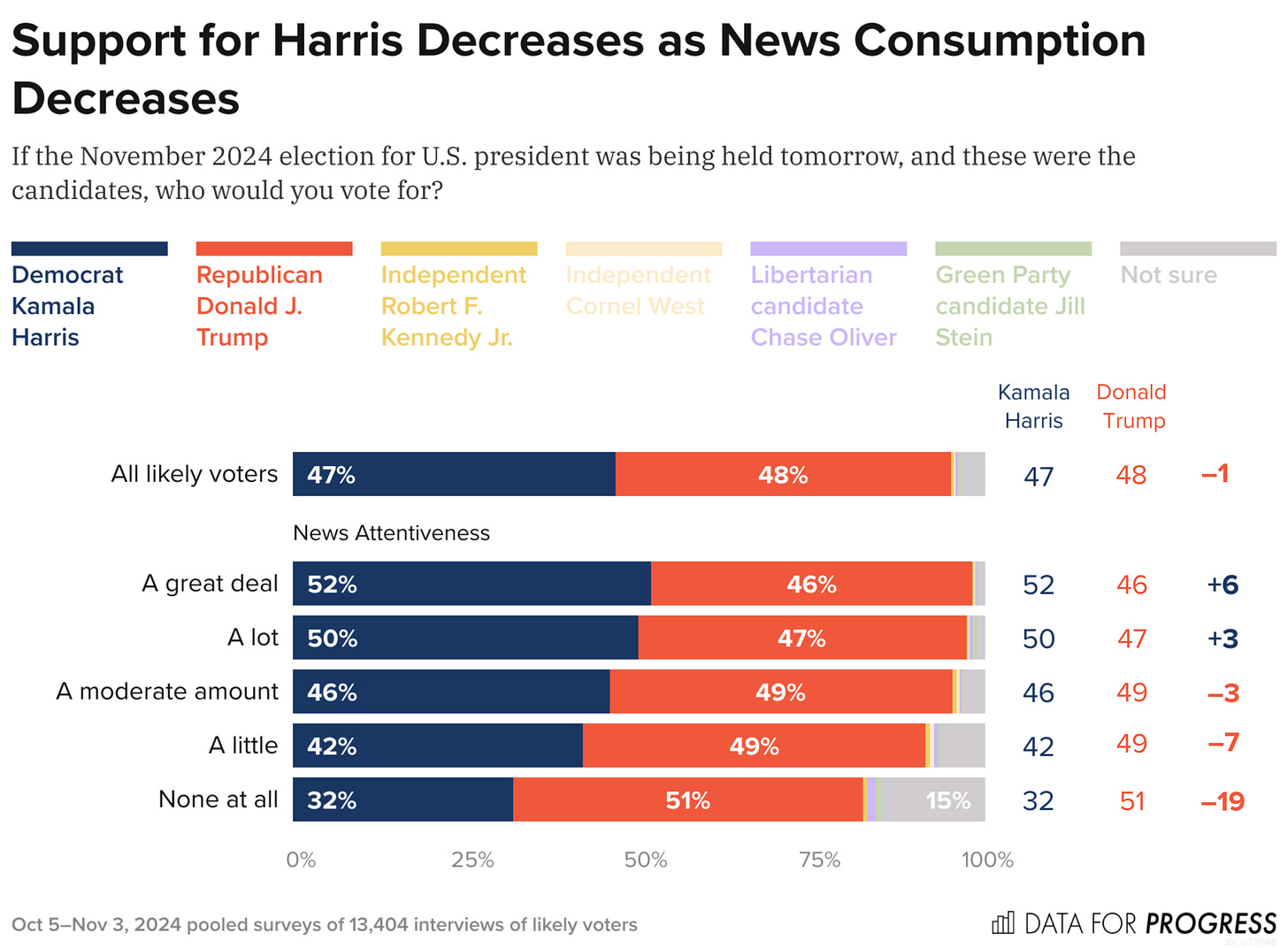Defeating MAGA One Share at a Time
Trump benefits from politics being impossible to follow
I want to start by saying thank you!
On Saturday, I posted about a new Trump Administration initiative that uses for-profit artificial intelligence companies to approve medical procedures for Medicare patients.
What makes this initiative even more dystopian is that the AI companies will get a cut of the savings they generate. That creates a powerful incentive to deny treatments: the worse it is for patients, the more money these companies make. It’s a cut to Medicare services designed to enrich tech barons. And while we don’t trust a word Trump says, this blatantly breaks his oft-repeated promise to protect Medicare.
I read the New York Times story disclosing this pilot program on the Friday before Labor Day weekend. As a former communications professional, I immediately recognized what the Trump Administration was doing—dumping bad news on a holiday weekend to avoid coverage and consequences. I was horrified by what they were doing and knew it could be very politically damaging if people actually heard about it.
Because I was so preemptively mad about Trump likely getting away with something so cruel (and politically stupid), I hammered out a post while waiting for a flight at Burbank Airport—even though every metric said the Saturday of a holiday weekend is a terrible time to send out a political newsletter. I sent it anyway — and you all responded. It had one of the highest open rates of any post this summer, and more importantly, it was shared nearly 800 times.
This is a reminder of how fortunate I am to have such an incredible community of Message Box subscribers. It also shows how a broken media ecosystem enables Trump — and what we can do about it.
A Very Broken Media Ecosystem
Two things are true.
First, the news has never been harder to follow. Newspapers are dead. Most digital media outlets can barely keep the lights on. Fewer people are watching cable. Social media, which used to be a primary way people encountered political news, is now filled with AI-generated slop and the kind of right-wing agit-prop that Elon Musk and Mark Zuckerberg adore. Following what’s going on in Trump’s America requires time and dedication. You have to be a political junkie like us.
Most of the country only learns about the big moments that break out of the political media bubble—like the tariffs or the Epstein Files. They are blissfully unaware of Trump’s daily assaults on American society. This is one reason why the more someone follows the news, the less likely they are to support Trump. I’ve shared this post-election poll from Data for Progress before, but it tells the whole story.
In a different era, with a different media ecosystem, a President using AI companies to cut Medicare benefits would be a massive story. It would dominate the discourse. Politicians would be asked about it at every turn. It would look very similar to the “death panels” mania that fueled opposition to Obamacare 15 years ago this month.
Instead, the story will go unheard by the swing voters who most need to hear it. The broken media ecosystem isn’t the only reason Trump remains afloat, but it certainly doesn’t hurt.
How We Can All Fight Back
The pipes that deliver information to people are broken. We can’t rely on news outlets or social platforms to carry the message. And even if they could, trust in the media is at an all-time low.
In an ideal world, Twitter, Facebook, TikTok, and Instagram would stop sucking. People would go back to trusting the media. And Democrats would magically develop a messaging and media operation that could compete with the Right. None of that is happening anytime soon (or, in some cases, ever).
In the meantime, all of us can inform the people in our lives about what is happening. That’s what you all did on Saturday. Eight hundred shares of one article isn’t going to win or lose an election, but every little bit helps. It’s a validation of why I started this newsletter five years ago: the most important communications in politics happen among family, friends, and acquaintances. With those folks, you will always be more persuasive than a member of the media or a politician.
Going forward, I’m going to call on this community more often to serve as a megaphone for the anti-Trump movement. I plan to write more quick posts about stories you may have missed that have real political significance — and include the best ways to talk about those issues.
I’ll make all of these posts free for everyone, so they’re easier to share. If you want to support this work by becoming a paid subscriber, I’m offering a special end-of-summer deal where your first month is free.
Thanks again for all your support. (Also, all the metrics suggest that the morning after a holiday weekend isn’t a great time to send out a post, but to hell with the metrics.)



Appreciate ya, Dan!
Pretty sure you have a typo in the paragraph directly preceding the poll graph re the more somebody follows the new the more likely they are to support Trump.. I don’t think you think that.
Might be worth addressing the difference between hitting the share button and actually discussing the details of what’s going on with friends and family.
A popular meme lately goes something like, “well-informed or sane—those are your choices”
An associated truism is that friends and family are not super excited to hear about the latest assault on our most cherished institutions and way of life.
I guess my point is that I think that represents a huge obstacle to having current events spread by word of mouth—few of us are very anxious to immerse ourselves in constantly depressing news and our friends and families don’t really want to hear it all the time either.